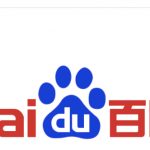JAMIE Dimon, chairman and CEO of JPMorgan Chase & Co, came through the financial crisis relatively unscathed but is suddenly looking a little less secure.
The top US bank by assets reported tepid first-quarter results, with income falling in its biggest businesses - investment banking and consumer lending, excluding accounting adjustments. Outstanding loans grew by just 1 percent, and profit margins on lending narrowed. Stock and bond trading revenue fell.
Every bank chief executive suffers from similar headwinds, but Dimon is also facing a shareholder vote next month at JPMorgan's annual meeting that could push the board to strip him of his chairman's role. A group of investors behind the proposal says the bank needs to separate the roles of chairman and CEO so the board can provide more oversight of management.
That follows a similar proposal in 2012 and comes after the bank posted US$6.2 billion of derivatives losses last year that came to be known as the "London whale" trades. The losses were recorded by an investment office whose head reported to Dimon.
Premium valuation
JPMorgan's stock has lost some of the premium valuation it used to enjoy over the shares of other big banks.
In addition, the bank's relationship with regulators has deteriorated in recent years, and insiders say JPMorgan's board blames that in part on the CEO.
"If the board wants to send a message that they want to restore regulatory confidence in the company, it will name an independent chairman," said Michael Garland, who oversees corporate governance for New York City Comptroller John Liu, one of the pension fund investors backing the shareholder proposal.
Garland said the trading loss showed that Dimon needed better oversight from his board of directors.
While Dimon's reputation as one of the best risk managers in the business may have taken a hit, and his pay was cut in half for 2012, he still has strong support from investors and the bank's directors. JPMorgan's board said last month that it "strongly endorses" keeping him as CEO and chairman.
"I think he's safe," said Alan Villalon, a senior research analyst at Nuveen Asset Management.
Dimon has been working to repair his relationship with regulators as well.
Top priority
In his annual letter to shareholders last week, he said: "I feel terrible that we let our regulators down." Getting control of the company's compliance systems is the firm's top priority, he said.
Still, Dimon has signaled that the loss of his chairmanship may make him feel far from comfortable. He told analysts in February that he would not have agreed to become CEO of Bank One, which was later bought by JPMorgan, if he could not have been chairman too.
"Troubled company, big turnaround, divided board. Not me. Life is too short," Dimon said at the time.
To Dimon's supporters, the London whale episode underscores his abilities as a manager. In spite of losing more than US$6 billion on the trades, the bank posted record profits last year.
The proposal to split the chairman and CEO roles last year received 40.1 percent of votes cast.
Since that vote, only five days after the company first acknowledged losing billions of dollars on the trades, shareholders have learned much more about the company's failed risk controls and the trouble it has had with regulators. More investors have joined the call for splitting the roles.








